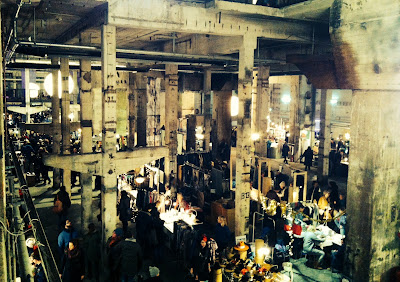One of the problems of international families, in addition to the obvious one of living in different countries, is combining national and family traditions, for example at Christmas.
In our case one of the main dilemmas is establishing when Christmas actually begins and when is it appropriate to wish someone a Happy Christmas?
These may seem like simple questions, but after years of discussion we're still nowhere near finding an answer that satisfies us all.
The German side of the family believes that Christmas begins at some point on the afternoon/evening of the 24th of December. It's not clear when exactly, but over the years I have learnt not to wait until the 25th to wish my husband a Merry Christmas. The answer would be: "That was yesterday".
While the Italian and British sides of the family also celebrate Christmas Eve (on the 24th), their Christmas is actually on the 25th.
The other problem is deciding when to exchange gifts and who brings the gifts.
Is it Nikolaus, is it the Christkind, is it Father Christmas, is it Babbo Natale, or perhaps the Befana?
I've managed to convince my husband that opening the presents on the morning of the 25th makes more sense than on the evening of the 24th, especially if you're four years old and get very excited about Christmas. I'm not sure that my mother-in-law was persuaded though... I noticed that she didn't put any presents under the tree.
On the positive side, we did have a rather large variety of Christmas desserts: Italian Panettone, German Stollen and British Mince Pies, Christmas Cake and Christmas pudding.
By the time we got to the 26th of December (Boxing Day in the UK or Santo Stefano in Italy), I thought it was safe to say that Christmas was over. But, no I was wrong, the German side was quick to point out that the 26th is called the second day of Christmas in Germany. But wasn't Christmas on the 24th? Oh well we've got another 360 days or so to work that out. Until then Happy New Year! Buon Anno! Frohes Neues Jahr!






















